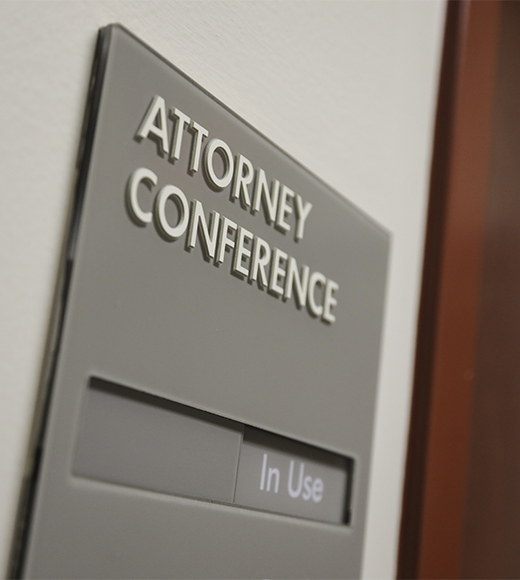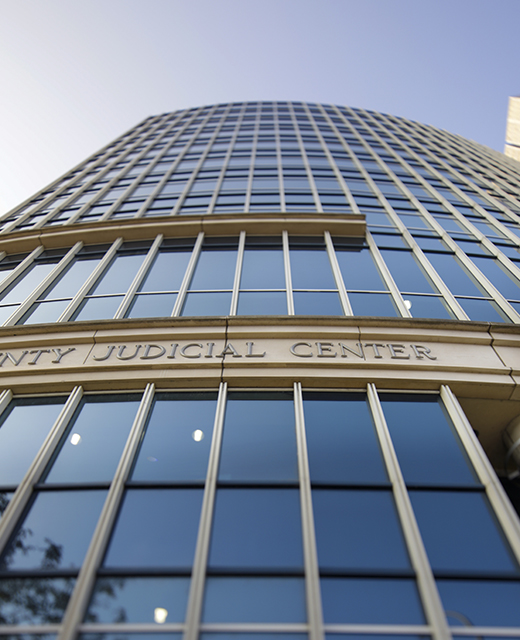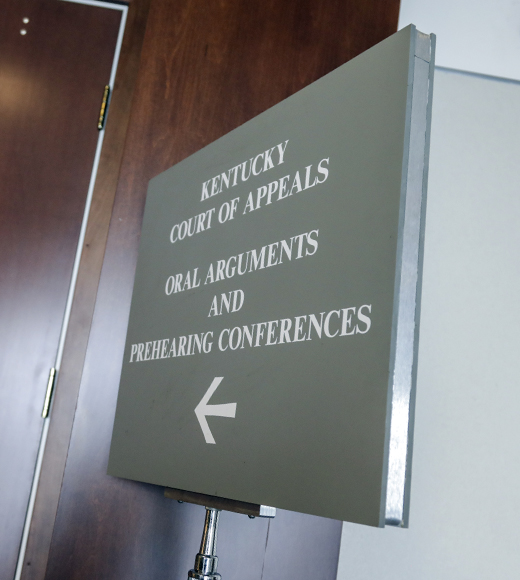Our Social Workers/Alternative Sentencing Workers are responsible for preparing a holistic, strengths-based assessment of our clients’ needs to identify services that meet their underlying issues with two goals in mind: first, to diminish the risk of later involvement with the criminal justice system; and, second, to reduce the necessity of incarceration and the exorbitant expenditures required to house people in jails and prisons when more effective and less costly alternatives exist. Our Social Workers may also provide services, including the development of mitigation evidence, in conjunction with the representation provided by staff trial attorneys assigned with responsibility for the resolution of pending criminal charges and the legal disposition of our clients’ cases.
Social Workers utilize motivational interviewing techniques to increase the client’s propensity for change while working as part of the defense team within the attorney-client relationship. Additionally, Social Workers improve coordination and cooperation amongst criminal justice agencies and treatment providers by promoting evidence-based practices and programs, as well as a better understanding of substance abuse, mental illness, and poverty issues. Our Social Workers interact and collaborate with local and state level agencies and treatment providers in order to assist clients with successful re-entry into the community after release from detention.


Jefferson County Drug Court is a specialty court for non-violent offenders whose criminal conduct is the result of untreated alcohol or substance abuse. Drug Court provides individualized treatment and judicial supervision to break the cycle of addiction and crime. Drug court participants work closely with a team of judges, prosecutors, defense attorneys, and social workers. The defense attorney’s role on the treatment team is to support drug court participants by providing constructive feedback and by assisting them with legal matters that may arise while they are in the program. Through this team approach to addiction, Drug Court participants are able to regain control of their lives.
The Veterans Treatment Court (VTC) Program serves military men and women who have become involved with the criminal justice system in their struggle to transition back to civilian life. As an alternative to incarceration, the VTC Program provides court-supervised treatment for veterans. A representative of the Public Defender’s Office works in conjunction with the judiciary, the prosecutors’ offices, the local police, Legal Aid, and others to support the veterans in the program with services to address the issues that brought them into the criminal justice system, including treatment for alcohol or substance abuse addiction, serious mental health disease, and to help with connection and access to benefits, housing, employment and education.
The public defender involved in VTC has a unique role in participating in this effort with other team members, particularly in protecting the due process rights of the veterans engaged in the program. This often involves one-on-one discussions with veterans regarding actions for which they may face court sanctions and talking with the team about whether such sanctions are appropriate, all the while ensuring that confidential information and privileged communications concerning veterans is safeguarded, their individual objectives and interests are pursued, and the integrity of the process guaranteed.


Expungement is the process of removing prior criminal charges from your record. This is a valuable option because it allows individuals to eliminate certain older offenses from public records, which may be very important when seeking employment, housing, and other benefits. Expungement does not happen automatically in all cases, meaning that in order to have the previous offense(s) removed from your record, you will have to go to court and proactively begin the process of seeking an expungement. There are several resources available to help you determine whether you (and/or your charges) are eligible for expungement. It is hoped that the links contained on this page will help you find out whether you are eligible for expungement and learn about the process you must go through in order to successfully remove past criminal charges from your record.
For information regarding an inmate currently in jail, go to the homepage for the Louisville Metro Department of Corrections: https://louisvilleky.gov/government/corrections. Look for “Search Our Current Inmates”. From that website you can determine if an individual is in custody as well as view a mugshot of the person. Additional available information includes booking date, charges, bond amount, next court date and courtroom number.
CourtNet is a product of the Kentucky Court of Justice and the Administrative Office of the Courts (AOC). Its purpose is to allow online access to information regarding criminal and civil cases in Kentucky. The general public can obtain basic information on active cases which are not confidential or sealed by going to the Guest page for CourtNet: https://kcoj.kycourts.net/kyecourts/login/guestlogin.
Department of Public Advocacy (DPA)
National Legal Aid & Defender Association (NLADA)
National Association of Criminal Defense Lawyers (NACDL)
Kentucky Association of Criminal Defense Lawyers (KACDL)
NAACP Legal Defense Fund
Southern Center for Human Rights
American Bar Association (ABA)
Kentucky Bar Association (KBA)
Louisville Bar Association (LBA)
Kentucky Office of Bar Admissions
Greater Louisville Convention and Visitors Bureau
Louisville Metro Government
Louisville-Jefferson County Public Defender Corporation
Advocacy Plaza
701-719 West Jefferson Street
Louisville, Kentucky 40202-2732
(502) 574-3800
Fax: (502) 574-1414
E-Mail: info@metrodefender.org
© 2021, Louisville-Jefferson Co. Public Defender Corporation
All Rights Reserved
With the passage of HB 568 by the Kentucky Legislature on March 16, 2023, the legal services provided by the Louisville – Jefferson County Public Defender Corporation (“Public Defender Corporation”) will be terminated as of June 30, 2024. The Kentucky Department of Public Advocacy (“DPA”) will provide those legal services beginning on July 1, 2024.
As a result, Public Defender Corporation will cease its regular business and operations on June 30, 2024. For further information regarding the Kentucky Department of Public Advocacy, including employment opportunities, please go to: https://dpa.ky.gov/.
Beginning July 1st, you can contact the DPA Louisville Trial Office at this toll-free number: 833-934-5953. If you need to call the DPA Frankfort Office, that number is: (502) 564-8006.